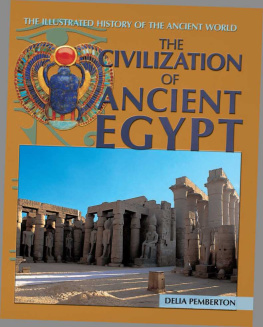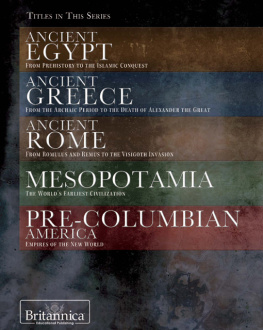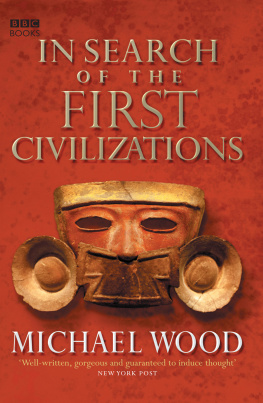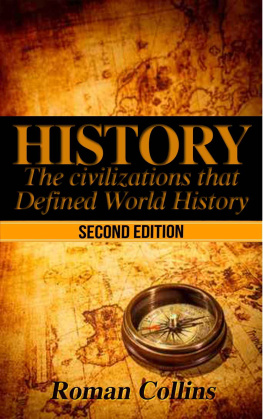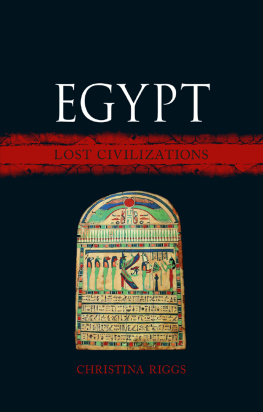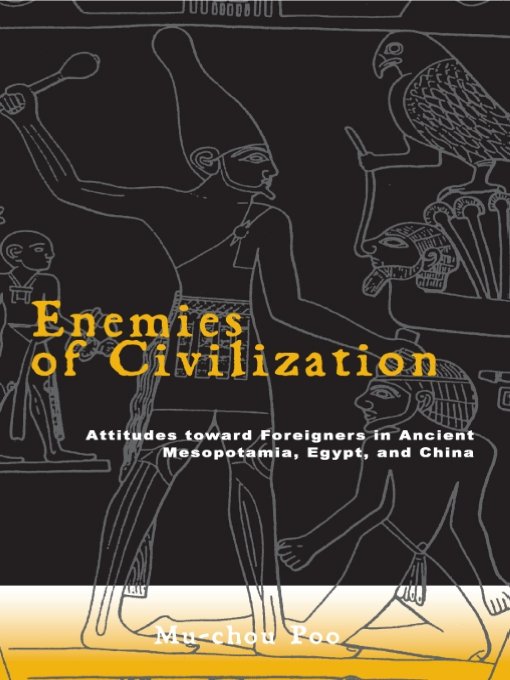
Table of Contents
Table of Figures
SUNY Series in Chinese Philosophy and Culture Roger T. Ames, editor
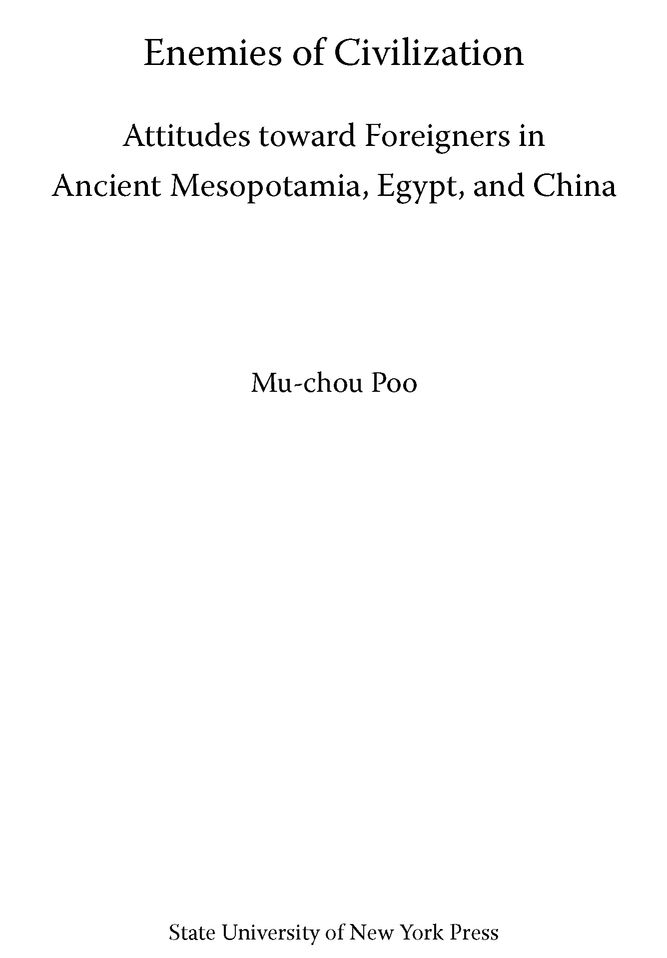
To my daughters Cindy and Sheila
Who venture into foreign land bravely
And to my soul mate Ping-chen
Who travels with me lovingly
Preface
About ten years ago I was asked by my fellow graduate students at Johns Hopkins University to contribute an article in a Festschrift for my mentor, Hans Goedicke, a famous Egyptologist. After some thought, I decided to write something that is both Egyptological and Sinological, just to show my appreciation to my old professor for his generosity in helping a foreign student. He himself, by the way, was an immigrant from Vienna. The article, when it was published, was rather short, with the title The Emergence of Cultural Consciousness in Ancient Egypt and China: A Comparative Perspective. I was not very satisfied with the result, however, and therefore began to conduct a more extensive study that will include not only Egypt and China but also Mesopotamia, one of my subfields when I was studying Egyptology at Johns Hopkins.
Looking back on the origin and process of this study, I recognized certain changes that occurred in my own understanding of the subject. My interest in the attitudes toward foreigners grew out of personal experience of being a foreign student in the United States. My subject of study, ancient Egypt, adds another layer of the feeling of foreignness: a foreigner in a foreign country studying a culture that was foreign to both. What is the relevance of my study to the contemporary society, a question that inevitably has to be asked for a student of humanity? The attitude toward foreigners, in light of Edward Saids powerful assail of the phenomenon of Orientalism, seems to stand out glaringly. If Orientalism describes a kind of Western attitude toward foreigners in the modern Orient, and the analysis of this attitude leads to a reflection of the nature of modern Western hegemonic order, what can one say about the ancient Orient? Here, of course, the problem becomes very complicated. Are we talking about our attitude toward the ancient Oriental civilizations, such as Egypt, Mesopotamia, and China, as also a form of reading the other according to our own preconceptions and implicit hegemonic or patronistic order? Are we talking about the ancient civilizations themselves, their attitude toward foreigners, and if or how they also espoused a form of Orientalism? Should we dig at the root of ancient studiesa form of intellectual, but also very political, pursuit of the origin of Western culture that could authenticate its hegemonic powersince the nineteenth century? Should I, aChinese looking from the East with an eye trained in the West, take a look at the Chinese view of the West and talk about a form of Occidentalism? Being unable to solve all these issues at once, I took up perhaps the easiest one and decided to engage in the ancient attitudes toward foreigners, and, being unable to resolve my own identitya Chinese trained in the West on the subject of Oriental studiesI decided to venture into a comparative study. Thus the present book.
When I began to investigate the issue of foreigners in the ancient world, I first adopted a positivist method in looking at the evidence. I examined textual and iconographic evidence and tried to detect the attitudes behind them. My intention was to investigate the nature of civilizations by looking at their attitudes toward othersas a reflection of the self. It seems straight forward enough, until I realized that, first, the concept of foreigner differs in each civilization, and that foreign is a relative and ambiguous term: one needs to delineate who are we, the insiders, and who are they, the outsiders, as the original meaning of foreign in Latin, fors, means outside. The problem is, what if the we is not a homogeneous group? What if the self itself is an unstable thing that changes through time? How to capture this change? I find it very difficult to conduct research when facing the evidence that purports to express a certain attitude toward the others while it is uncertain whether the one who left the evidence is really so different from the others I then adopted a position that sees the construction of ethnic identity as a subjective choice, that the division between self and others was not necessarily based on any objective conditions such as race or culture, although these could have been the factors. From here I realized that the entire project of looking for foreigners might have been ill-conceived: as it was very much debated that the problem caused by modern nationalism was in part based on a conception that makes a forced distinction between us and others, foreigners, to talk about the concept of foreigners in the ancient world seems to be perpetuating it by giving it a legitimating precursor. To avoid falling into this trap, I examined the various ways of looking at and treating the foreigners in ancient civilizations and discovered that the attitudes were not necessarily all negative. Moreover, if there were divisions between we and they, the criteria were often cultural rather than racial or biological characteristics. I thus at least made a distinction between the ancient and modern attitudes.
As for the comparative aspect of this study, it is based on my personal conviction that knowledge is the result of comparison, and conscious and controlled comparative study in history can be very important for us to discover new aspects of human society that eluded conventional historical research.It should not be mere enumeration of similarities and differences, but an investigation into the reasons why there were the similarities and differences, and to shed some otherwise unavailable light on each of the parties involved.
This project received a substantial support from a grant from the CCK Foundation, 1995-97. During the process, I received continuous support and criticism from Drs. Hans Goedicke and Jerrold S. Cooper, two of my mentors at Johns Hopkins, as well as many other colleagues and friends. Parts of the chapters were delivered at Ann Arbor, Paris, Princeton, Berlin, and a number of international conferences. A fellowship from the British Academy in 2001 allowed me to use the libraries of London University and the British Library, which was essential for me to conclude this study. My colleague John Kieschnick read an early version of my manuscript and offered many useful suggestions. My students Tzu-hsuan Huang and Yi-chen Huang did the drawings and the chronological table and helped me in the final preparation of the manuscript, their efforts are very much appreciated. My wife Ping-chen has been the most important supporter and critical voice of my work, which I can never repay. I alone, however, should be responsible for all the shortcomings that still exist in this book.
Abbreviations
| ANET | J. B. Pritchard, Ancient Near Eastern Texts Relating to the Old Testament. (Princeton: Princeton University Press, 1969). |
| ASAE | Annales du Service des Antiquits de lgypte. (Cairo) |
| HB | Hildesheimer gyptologische Beitrge. (Hildesheim) |
| JARCE | Journal of American Research Center in Egypt. (Boston) |
| JCS | Journal of Cuneiform Studies. (New Haven) |
| JEA |



